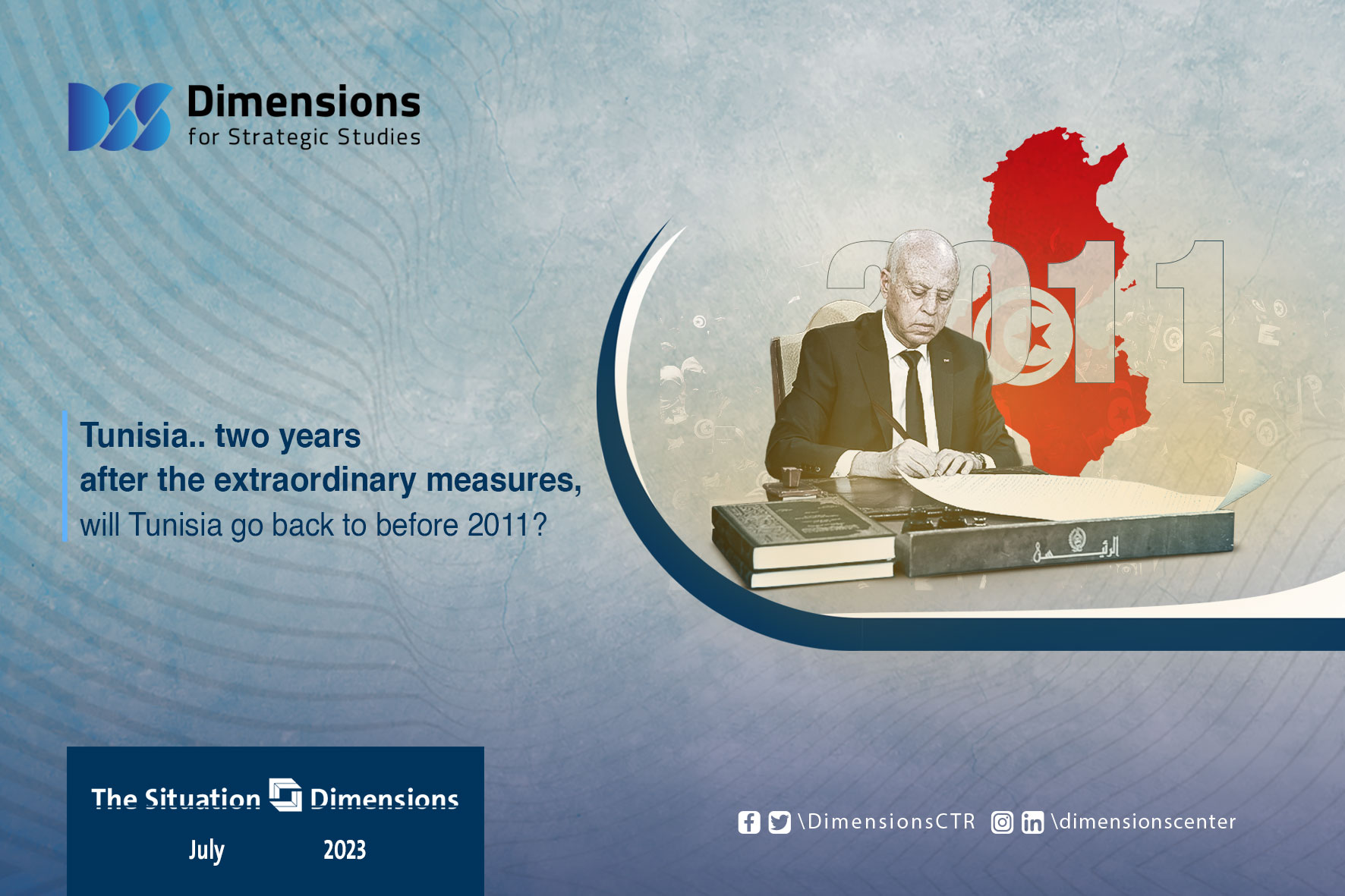
Tunisia.. two years after the extraordinary measures, will Tunisia go back to before 2011?
2023-07-252084 view
Tunisia has had special importance and symbolism throughout the Arab region as the place where the spark of the Arab Spring ignited in 2011 inspiring the eruption of other revolutions in a number of Arab countries. Until these exceptional measures were initiated by Tunisian President Kais Saied on July 25, 2021, Tunisia was classified as the best in terms of rights and freedoms. It is at least the least affected among the countries of the Arab Spring in general; if it is to becompared to their deteriorating painful situation.
Two years have passed since Tunisian President Kais Saied implemented those exceptional measures under which the government and parliament were dissolved. This resulted in substantial negative effects and repercussions on Tunisian society with regard to issues of rights and freedoms in particular, as these measures represented a setback to the democratic transition.
Tunisia witnessed great challenges and internal divisions at the level of various political parties, civil society organizations and the general Tunisian people regarding these measures. Some have considered these measures as a coupe against democracy and the transitional move towards it, others viewed it as emergency measures and a way to get rid of the chaos and crises caused by the raging differences between the political class amid the economic difficulties that accompanied the Corona crisis and beyond.
After two years it seems that the country is still facing the negative repercussions of those measures, which requires the mobilization of resources and solidarity in order to overcome them, including polarization and continuous debate over the country's priorities between the binary of "security and stability" on the one hand, and "freedoms and democracy" on the other. In addition to that, there is the controversy and division which is an extension of the societal polarisations witnessed by all the countries of the Arab Spring.
Furthermore, the country is still facing economic crises that negatively affect the lives of citizens, as well as security challenges and the problem of irregular migration as an aggravating problem with the increase in the number of African migrants who take Tunisia as a crossing point towards the European continent. This challenge is added to the list of controversial issues between the authorities and human rights organizations that have begun to denounce policies against illegal immigrants.
Two years after those exceptional measures have been taken, it does not seem that they have contributed to getting the country out of the dark tunnel. On the contrary, the crises that the measures are supposed to contribute to resolving have deepened in parallel with the deterioration in the climate of freedoms and democratic transition.
Based on the foregoing, future scenarios seem to be heading towards reproducing the one-man state unless agreed upon formulas are reached for a serious national dialogue about the future of the country and the march towards restoring democracy and stability together. This calls for a comprehensive commitment by the government, the opposition, and civil society organizations to work together in order to achieve the aspirations of the Tunisian people and build a better future.
In the end, achieving stability and democracy in Tunisia is a collective responsibility that encompasses the government, the opposition, and various civil society organizations. It further requires overcoming the current challenges through the concerted efforts of everyone and thinking strategically in building a bright future for the country and all citizens.
The responsibility for carrying out this serious national dialogue rests with the authority in the first place, by creating the conditions and climate for a free, participatory, transparent, and comprehensive dialogue. This; however, does not seem achievable through the continuation of what currently seems to be a state of moving towards transforming Tunisia once again into a one-man rule state. Such a scenario might carry the risks of returning to the pre 2011Tunisia. The present situation seems to carry the seeds of the big explosion that Bouazizi started. It simply makes the situation in Tunisia more like a caustic fire under the ashes, liable to explode at any moment, waiting for a spark.





